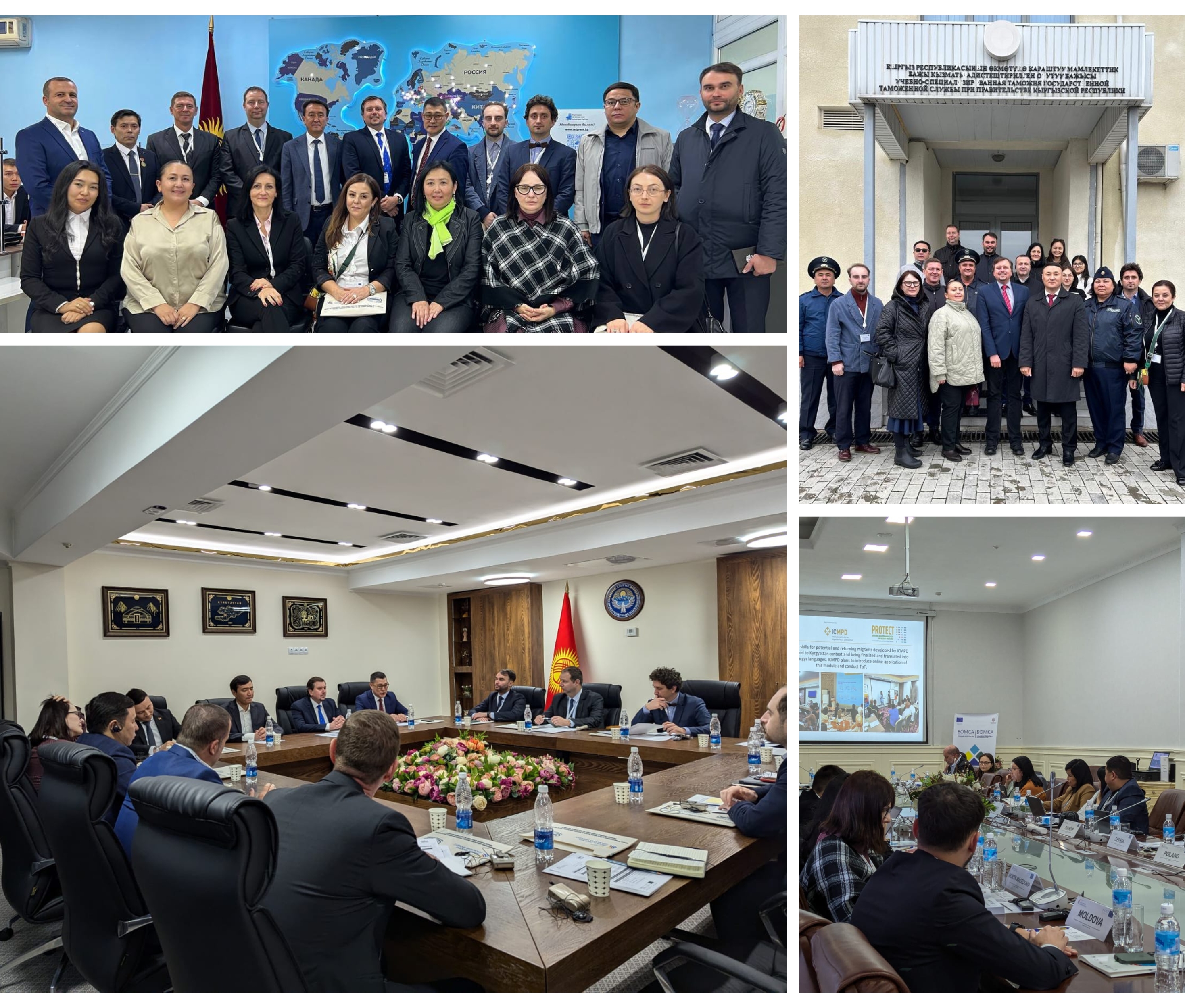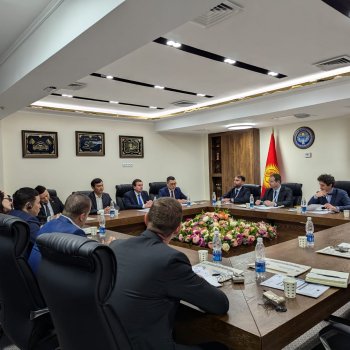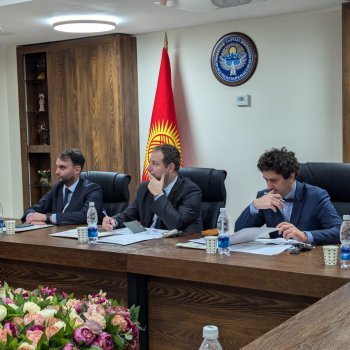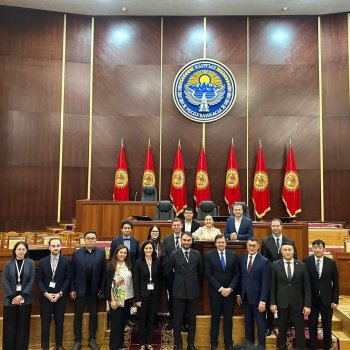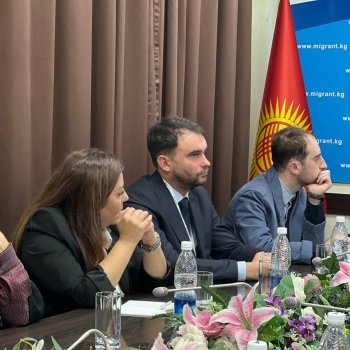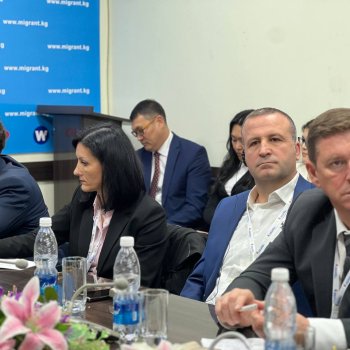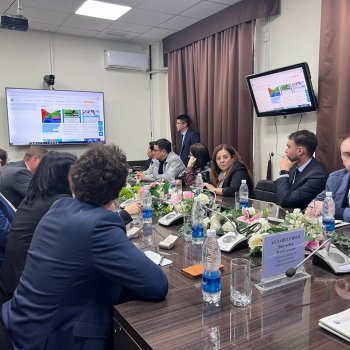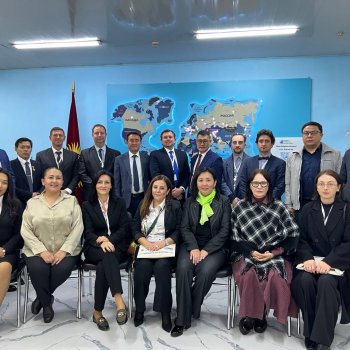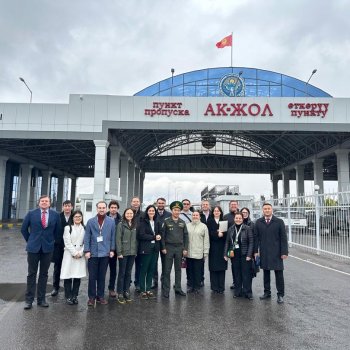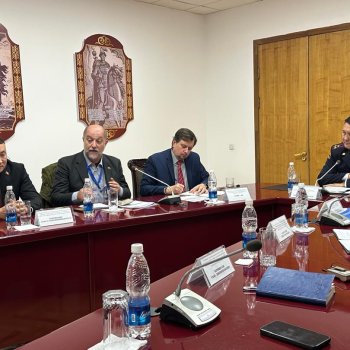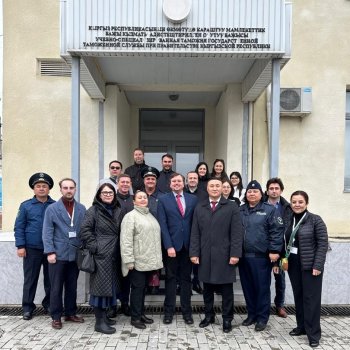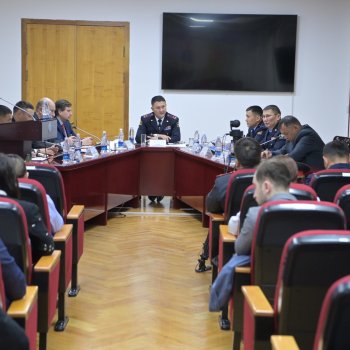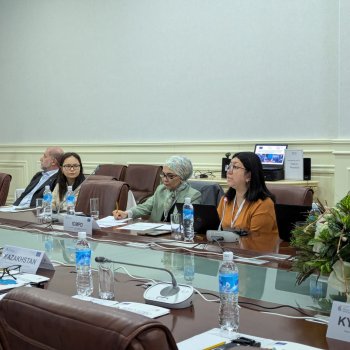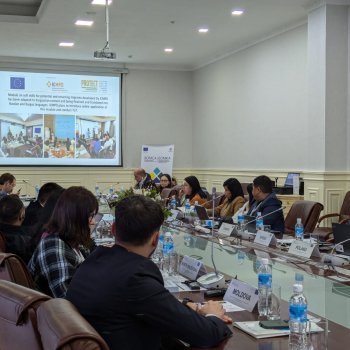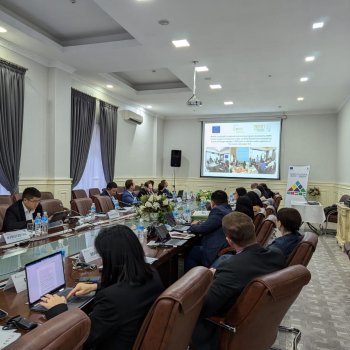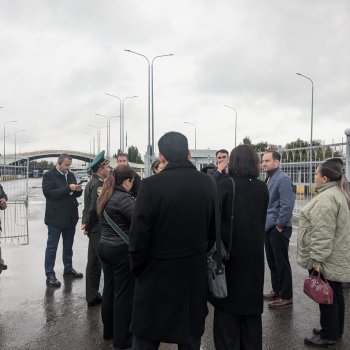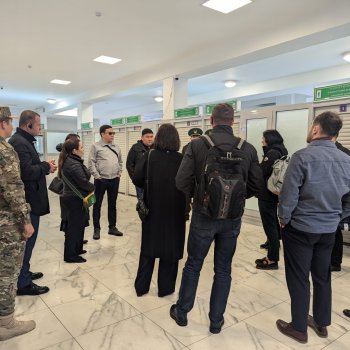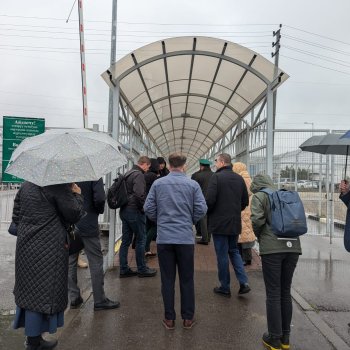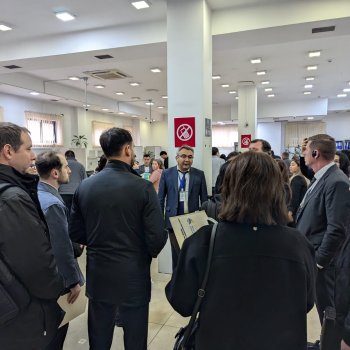On 15-17 October 2024, the Kyrgyz Republic hosted representatives of 12 Prague Process states and introduced them to its national approaches to migration management, human trafficking prevention, and border control. The visit offered participants an opportunity to learn about Kyrgyzstan’s legal frameworks, administrative practices, and digital advancements in migration and border management.
This activity was organised within the Thematic Component 1: Preventing and fighting irregular migration and migrant smuggling, co-led by Hungary and the Kyrgyz Republic.
Institutional Insights
The offered site visits provided valuable insights into various administrative and operational processes.
The Member of Parliament and the Head of the Migration and Human Trafficking Council Secretariat welcomed participants to the Kyrgyz Parliament. Kyrgyzstan's commitment to address human trafficking and irregular migration builds on robust legislative measures, such as the Constitution’s explicit prohibition of trafficking or the establishment of National Referral Mechanisms. Aligned with international standards, these mechanisms set out the concrete procedures for victim identification, rehabilitation, and reintegration.
The Department of Population Registration offered insights into the issuance of passports and ID cards, or the process of naturalisation. The Tunduk mobile application enables over 2 million users to access digital documents and government services, reducing bureaucracy and increasing transparency.
Kyrgyzstan’s emphasis on digitalization was a recurring theme of the Study visit. The Tunduk app and state enterprise Infocom constitute key drivers of digital transformation. Infocom’s solutions in identity management, digital signatures, and document processing highlight the potential of technology to streamline governance and enhance citizen services.
The Centre for Employment of Citizens Abroad under the Ministry of Labour provides pre-departure training and operates an informational platform (www.migrant.kg). Its services aim to ensure safe and regular migration while minimizing exploitation risks.
Tackling Human Trafficking and Border Management
A visit to the Main Directorate of Criminal Investigation of the Ministry of Internal Affairs showcased Kyrgyzstan’s efforts to combat human trafficking. Authorities shared data on trafficking cases and discussed legal and operational measures, including recent amendments to the Criminal Code to address specific trafficking issues, such as the sale of newborns. Participants also examined the integration of advanced monitoring systems at the Operational Control Centre with numerous surveillance cameras supporting crime prevention and public safety.
At the Ak-Zhol Border Crossing Point, visitors explored the upgraded facilities capable of handling up to 35,000 individuals and 5,000 vehicles daily. As a member of the Eurasian Economic Union, Kyrgyzstan’s border management demonstrates seamless integration of security measures and trade facilitation.
Capacity Building and Regional Collaboration
The Training Centre for the State Customs Service exemplifies Kyrgyzstan’s emphasis on professional development and international cooperation. The centre is equipped with mock checkpoints, boasting canine unit operations and advanced detection technologies.
The final day featured presentations from regional programs such as BOMCA 10 and PROTECT, implemented by ICMPD and other partners, underscoring collaborative efforts in combating irregular migration and trafficking. Participants exchanged experiences and identified opportunities for cross-border cooperation.
Overall, the Study visit provided comprehensive insights into Kyrgyzstan's integrated institutional approach to addressing evolving migration challenges. The experiences shared shall inform policy development in the participating countries, fostering a collaborative network of state experts. Showcasing Kyrgyzstan's advancements, the Study visit also underscored the importance of shared learning and regional partnerships in addressing common migration challenges.

